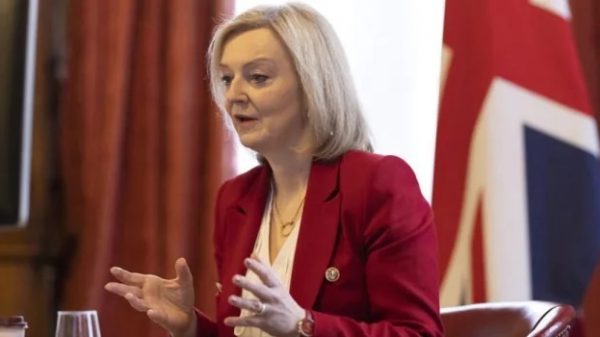New development strategy to better target aid, says UK

Shawdesh Desk:
The UK will try to better direct its aid budget to nations to help foster economic growth, offering an alternative route away from what London calls “malign actors” by instead dealing directly with countries.
British Foreign Minister Liz Truss on Monday (May 16) published International Development Strategy to respond to a world increasingly affected by geopolitics.
“The Britain will use aid and investment to create global economic growth and challenge dependency on malign actors to offer honest alternative for low- and middle-income countries,” reads the UK White Paper on the UK aid.
Since leaving the European Union, Britain has wanted to better flex its diplomatic muscle on the international stage, hoping to expand its influence among countries in the Indo-Pacific region to try to moderate China’s global dominance.
The new International Development Strategy will help address global challenges, deliver investment, support women and girls, get humanitarian assistance to those who need it most and continue work on climate change, the government said on Monday.
“In an increasingly geopolitical world, we must use development as a key part of our foreign policy,” Foreign Secretary Liz Truss said in a statement.
“Malign actors treat economics and development as a means of control, using patronage, investment and debt as a form of economic coercion and political power. We won’t mirror their malign tactics, but we will match them in our resolve to provide an alternative,” she said, without naming any country or group.
The government will spend more on country and bilateral programmes, it said, reducing the amount channelled through multilateral organisations. By 2025, the foreign office intends to spend three quarters of its aid budget bilaterally.
It also intends to cut red tape and bureaucracy by giving diplomats greater authority to get programmes delivered quickly.
“The new strategy, launched today (Monday), will ensure that our international development work brings benefit across the globe and here at home,” Truss said.
“Our strategy will deepen economic, security and development ties globally, while delivering jobs and growth in both the UK and partner countries.”
According to the British High Commission in Dhaka on Tuesday (May 17), the International Development Strategy sets out four priorities where the UK can meet the needs of countries around the world:
· delivering honest, reliable investment, through British Investment Partnerships, building on the UK’s financial expertise and the strengths of the City of London and delivering the Prime Minister’s vision for the Clean Green Initiative – supporting countries to grow their economies sustainably.
· providing women and girls with the freedom they need to succeed. We intend to restore the bilateral budget to help unlock their future potential, educate girls, support their empowerment and protect them against violence.
· stepping-up our life-saving humanitarian work to prevent the worst forms of human suffering around the world. We will prioritise humanitarian funding levels at £3 billion over the next three years, to remain a leader in crisis response.
· taking forward our work on climate change, nature and global health. We are putting the commitments of our Presidency of G7 and COP26, and our COVID-19 response, at the core of our international development offer.
Liz Trusson said the new approach to development will:
· spend more on country and bilateral programmes rather than through multilateral organisations, empowering the UK to deliver more aid directly to where it is needed. By 2025, the FCDO intends to spend three quarters of its aid budget allocated at the 2021 Spending Review bilaterally.
· use world-class British expertise to support partner countries through providing advice, exchanging lessons and evidence of what works and building partnerships across government, research, business and civil society.
· cut back red tape and excessive bureaucracy around delivering aid and give Ambassadors and High Commissioners greater authority to get programmes delivering on the ground quickly. We will reduce the time it takes to approve a business case from many months to less than six weeks.
· sustain our commitment to Africa and ensure our development programmes in the Indo-Pacific remain a critical part of our ambition to increase our focus on the region.























Leave a Reply